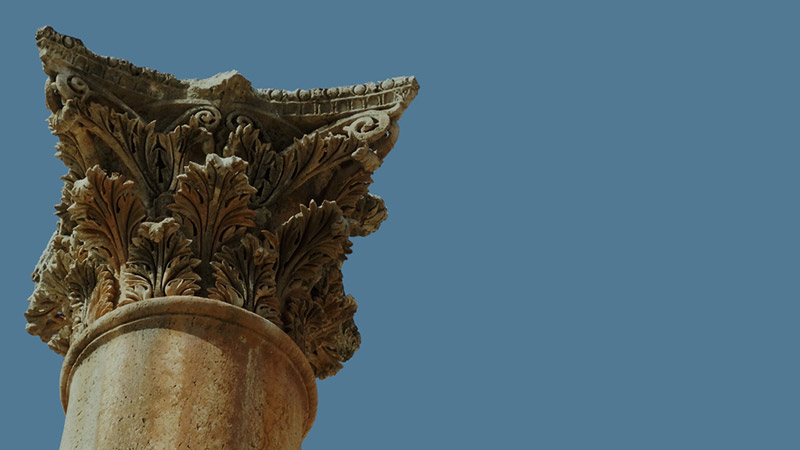Updating...
Showing 12 of 52

Throughout Bible times, the burial ritual was regarded as very important. Jesus, sharing fully in our humanity (Heb. 2:14), was given a typical, though hurried, burial. Understanding the burial customs and practices of first-century Israel can hel...
MORE
This room was the center of family life. It was probably used for eating, for storing food, and for socializing with extended family. Guests could be invited in if the weather was inappropriate for dining outdoors in the courtyard.A small wooden t...
MORE
The Temple CourtsThe remains of Israel's first temple lie buried beneath the present-day Temple Mount. But at Tel Arad, a city located in the Negev, archaeologists discovered the remains of a temple modeled after Jerusalem's First Temple.Although ...
MORE
The fortress of Belvior has both an outer fortification and an inner castle. A moat, hewn out of the same bedrock quarried to build the castle, encircles the structure on three sides. Towers stood in each corner and in the center of the outer wall...
MORE
The typical Galilean house was built of basalt (dark volcanic rock) with the stones carefully squared or "dressed" by a stonemason (sometimes translated as "carpenter").A wooden scaffold is used in the building process. Smaller...
MORE
Herod seized an opportunity to control world trade by building a seaport on Israel's coast, where the sea routes and the predominant land route intersected. Caesarea was a glorious city, covered with marble, and symbolizing the vast wealth that He...
MORE
This photograph shows the remains of the caldarium (hot bath) of the public bathhouse. The floor of this room, now gone, was originally placed on the more than 200 columns seen here. The floor itself was probably a mosaic.The walls were faced with...
MORE
City gates played a significant role in ancient life. Because openings in city walls created a weak place, ancient people strengthened their gates to prevent their city from being easily invaded. Building a gatehouse inside the city wall became a ...
MORE
Located in the holy place or priests' room of the tabernacle or temple, just outside the Holy of Holies. The altar was 1.5 feet square and 3 feet high. The incense symbolized the "sweet smell" of the worshipers' prayers going up to God.
MORE